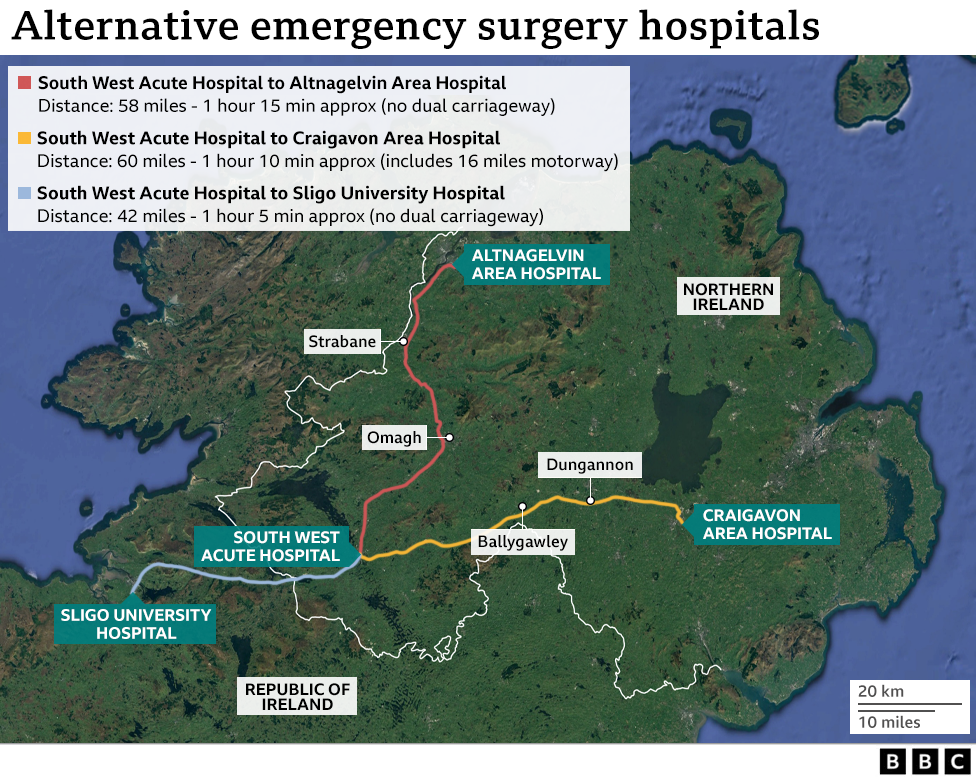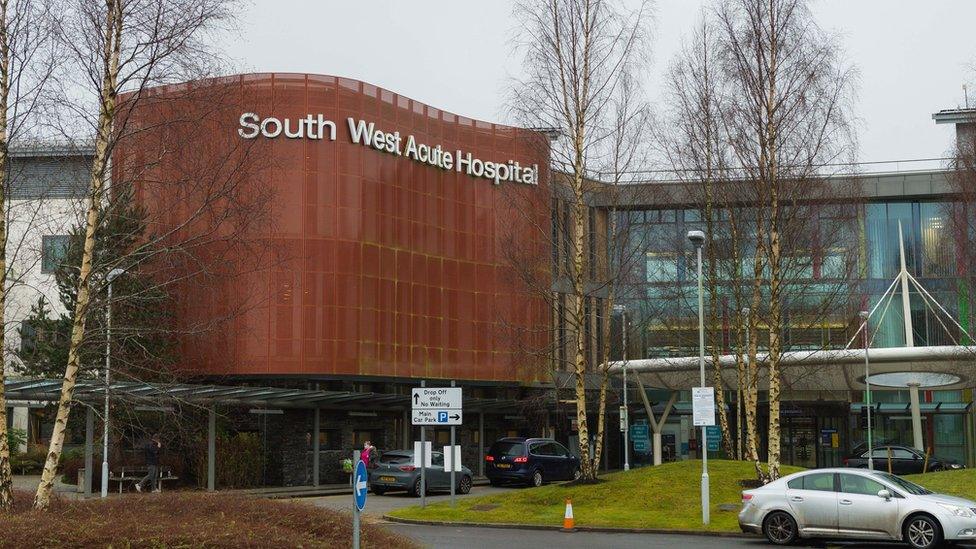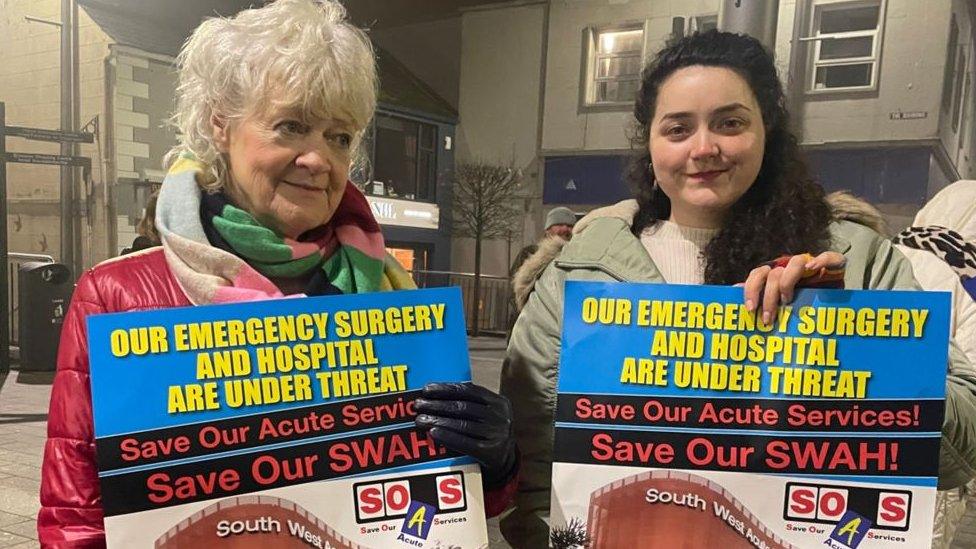SWAH: Surgeons say surgery removal down to service's fragility
- Published

Emergency general surgery is expected to be withdrawn from SWAH on Sunday 18 December
The move to withdraw emergency surgery temporarily from the South West Acute Hospital (SWAH) was due to the risk of services becoming more fragile and less safe, a group of surgeons have said.
The consultants - who sit on the Review of General Surgery Network - come from Northern Ireland's five health trusts.
They said the loss of three surgeons in December and failure to recruit more led to the decision.
It added that a 2016 health reform report had been ignored.
The decision to withdraw emergency services from 18 December at the Enniskillen hospital was announced by the Western Trust on Thursday..
The trust said the move was necessary to protect the public's safety after it had problems recruiting surgical staff.
It added that the emergency department and other services, including obstetrics, will continue to operate as normal.
The decision created an immediate backlash, with local groups and politicians expressing outrage and devastation over the move.
Many said they are concerned that the road infrastructure does not support a quick transfer of patients from Enniskillen to Altnagelvin, Craigavon or hospitals in Belfast.

What is emergency general surgery?
Emergency general surgery relates to the treatment of patients with conditions such as acute abdominal pain, infections, bleeding and trauma.
It includes operations such as removing a patient's gall bladder, appendix or part of the bowel.

In a statement on Monday, the surgeons said they recognised and understood the support in the local community for their hospital.
However, they said there were many cases in which emergency care already bypasses the SWAH - for instance heart attack patients requiring stents or those who have suffered major trauma go to hospitals in Londonderry or Belfast.
They added: "A local hospital is not always the best or the safest place to be treated."

People will have to travel to other hospitals for emergency general surgery
The group also said that patients should still attend the SWAH emergency department as normal if they experience symptoms like severe abdominal pain.
They explained that doctors will determine the diagnosis and if patients need to be admitted for observations or an operation, they will be transferred to another hospital.
'Punishing rotas'
They added: "It is unavoidable fact that smaller hospitals are finding it difficult to recruit and retain consultant general surgeons.
"Emergency general surgery requires 24/7 consultant cover.
"When you have smaller teams, rota are more punishing as they are shared out among fewer colleagues.
"The service invariably ends up being reliant on temporary locum doctors to plug gaps that cannot be filled permanently."
They added that although temporary doctors do provide excellent care, their constant use can bring inconsistences and cause difficulties in continuity of care to patients.
"In short, the service becomes less resilient, more fragile and less attractive as a workplace," it added.
The group also said it was easy to accuse health trusts of "not doing enough on the recruitment front or to keep demanding that they try harder".
"'Trying harder' will not alter the basic realities of population size and modern emergency surgical practice."
Related topics
- Published17 November 2022

- Published17 November 2022

- Published18 November 2022
